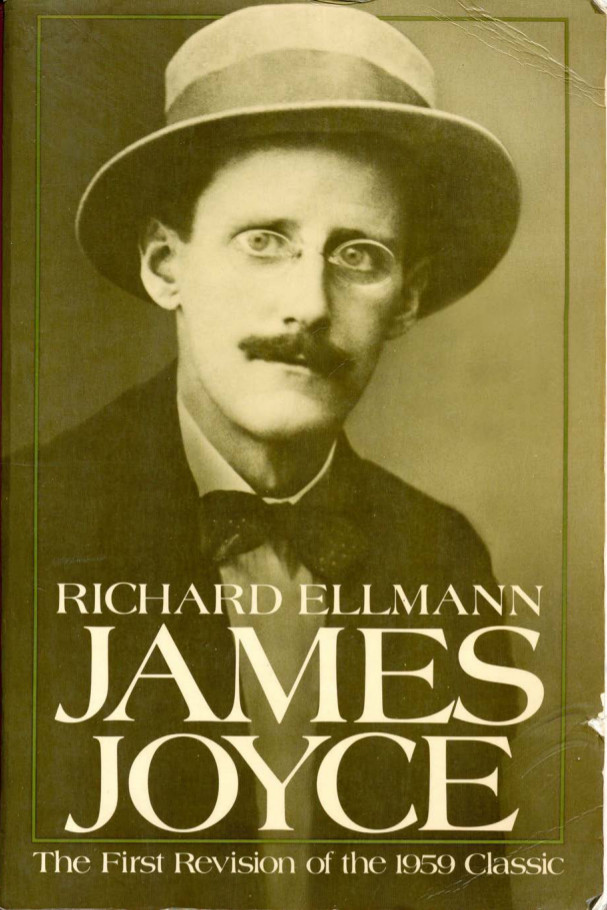Roland Barthes by Roland Barthes (1975/1977)
Filed under book | Tags: · biography, language, literature, semiotics

Roland Barthes by Roland Barthes is the great literary theorist’s most original work—a brilliant and playful text, gracefully combining the personal and the theoretical to reveal Roland Barthes’s tastes, his childhood, his education, his passions and regrets.
Originally published as Roland Barthes par Roland Barthes, Editions du Seuil, 1975
Translated by Richard Howard
Publisher University of California Press, with Hill and Wang, a division of Farrar, Straus & Giroux, 1977
ISBN 9780520087835
188 pages
via Keykeeper
PDF (images are of low quality)
Comment (1)Richard Ellmann: James Joyce (1959/1982)
Filed under book | Tags: · biography, history of literature, literature

“Richard Ellmann has revised and expanded his definitive work on Joyce’s life to include newly discovered primary material, including details of a failed love affair, a limerick about Samuel Beckett, a dream notebook, previously unknown letters, and much more.”
“The greatest literary biography of the century.” — Anthony Burgess, The Observer
First published in 1959
New and Revised Edition
Publisher Oxford University Press, 1982
887 pages
via mistral13
Review of the first edition (Stephen Spender, The New York Times)
Early film on James Joyce by Pegarty Long (1977) (14 min, incl. interview with Richard Ellmann)
Catherine Karen Roy: File-based Autobiographies After 1989 (2011)
Filed under thesis | Tags: · archive, biography, data, subjectivity, surveillance
“This study analyzes four autobiographical accounts written after the fall of the Berlin Wall by former data subjects, i.e., by individuals who have been under the surveillance of the East German Stasi (Staatssicherheit). Following a suggestion by Cornelia Vismann, I refer to these texts as “file-based autobiographies.” The term reflects the fact that they were written in response to the opening of the Stasi archives and the passing of the Stasi Files Act, which allowed data subjects to access their files. By constructing narratives using files written and compiled by informers and secret police officials rather than relying on their own, personal memories, these data subjects challenge the traditional aesthetics of autobiographies and subvert the usual expectations of autobiographical reading. “File-based autobiographies” constitute nothing less than a new autobiographical sub-genre. Rather than offering a personal story that begins in early childhood and ends later in life, data subjects engage in a revision of their lives using files written by a hostile third party. The four case studies show how people under surveillance may need to draw on such documents, even if they are inaccurate, in order to support their claims of authenticity and thus fulfill the autobiographical pact. In this way, these autobiographers acquire and re-functionalize the hostile documents, thus challenging the original purposes for which the files were kept. They show that using their files not only results in unexpected memory processes, but is also a political and literary process that supports their personal agendas and targets particular audiences. Access to and subsequent use of their files gives them the authority to discuss their reaction to the opening of the Stasi files as well as the records themselves.”
Doctoral thesis
The University of British Columbia, Vancouver, October 2011
230 pages

